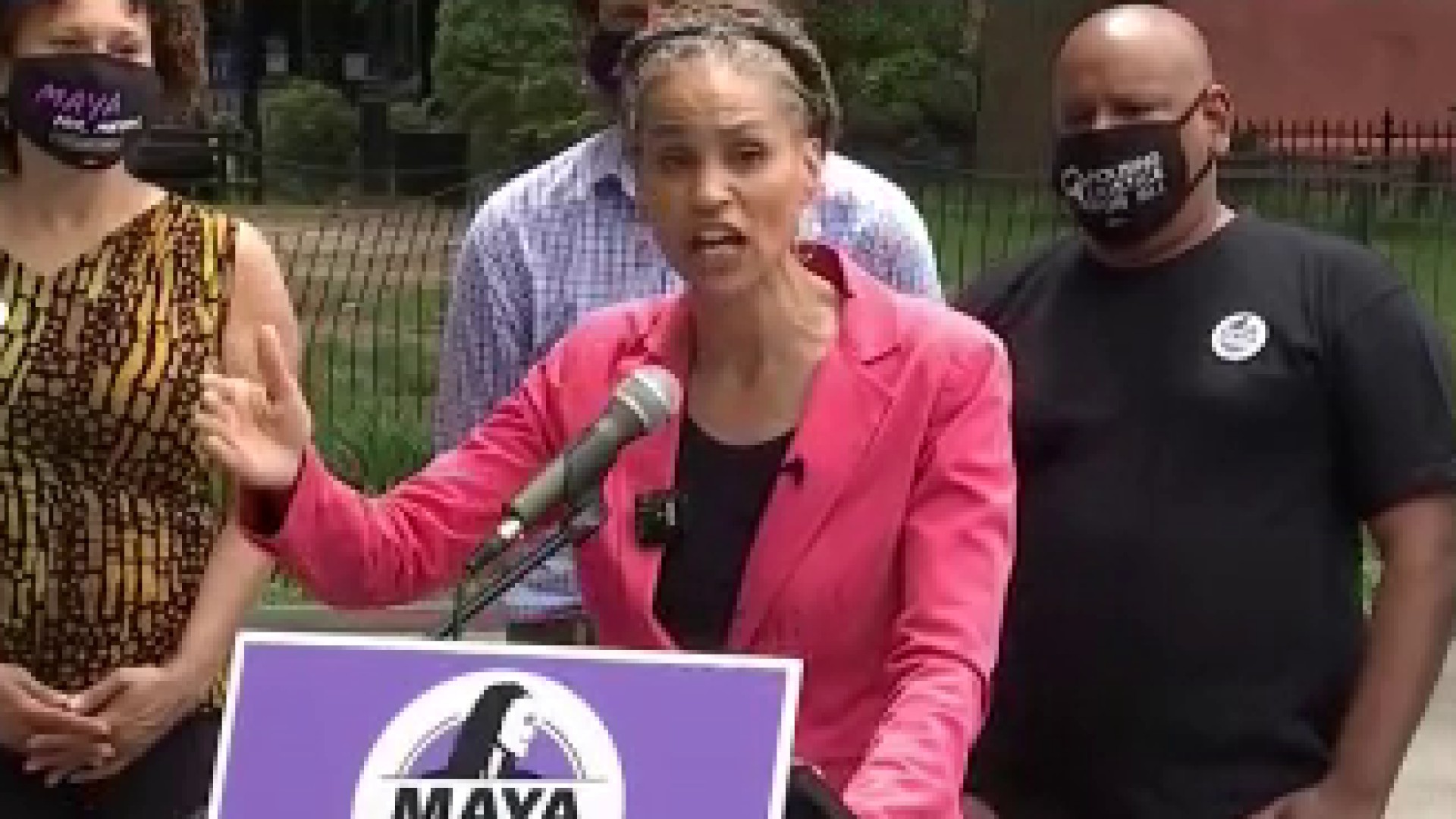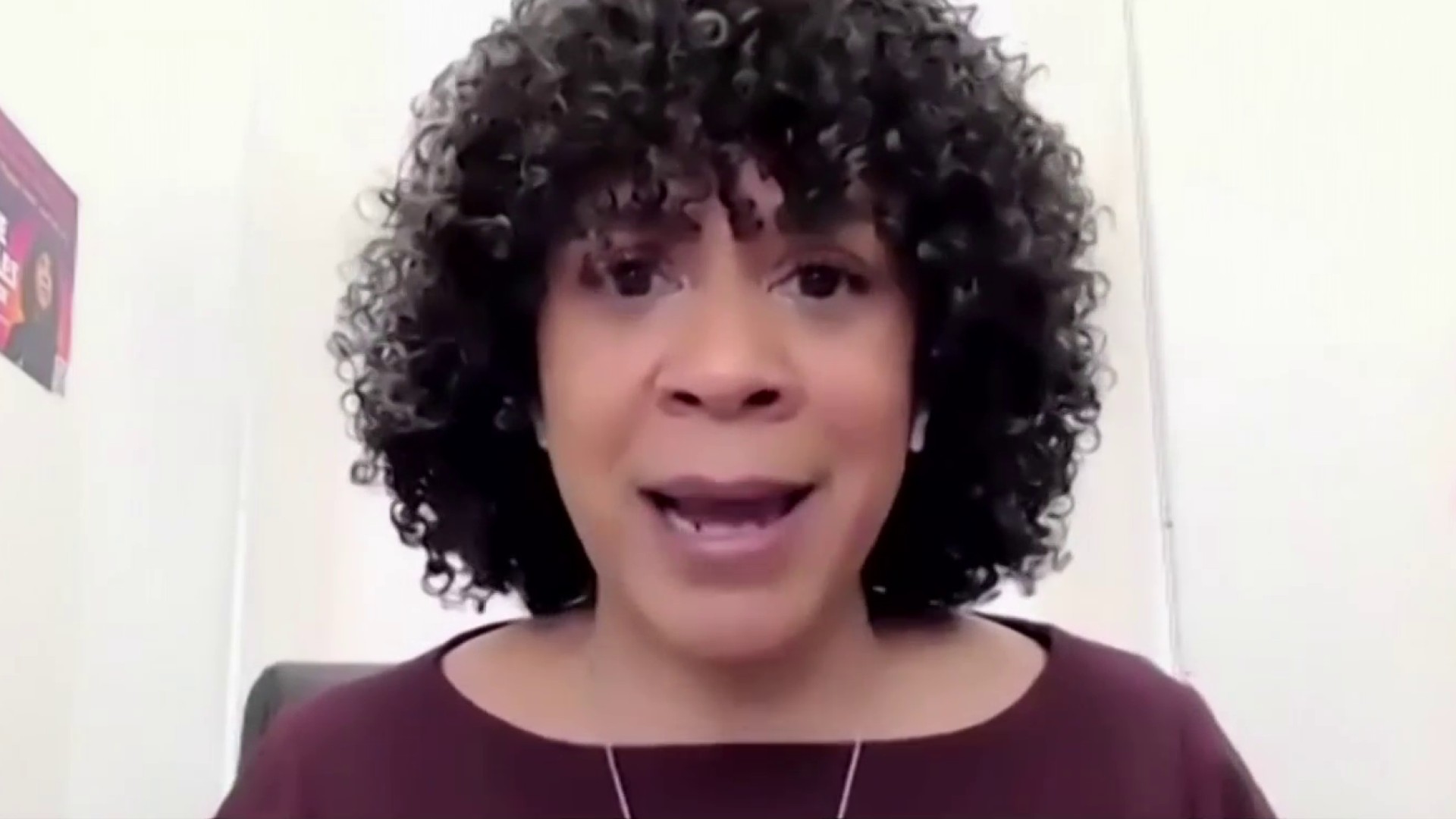Eight Democratic candidates running to be New York City's next mayor sparred in a debate Wednesday night, each trying to position themselves as the person to lead the city forward with the primary election less than three weeks away.
The televised debate was the second in the race to succeed term-limited Mayor Bill de Blasio, but the first time the candidates had been in the same room as opposed to virtual. It set up an at-times cacophonous event, with candidates frequently talking over each other, going over time allotments and criticizing each other's stances.
"It feels like there is a four-person debate going on and we are all being ignored on this side," Brooklyn Borough President Eric Adams said at one point, after other candidates were continually talking over one another at one end of the podiums.
The candidates were aggressive with each other as they were asked about issues including how to deal with an increase in violent crime, policing, and the city's recovery from the pandemic.
A particularly harsh exchange came toward the end of the debate between Adams and former presidential candidate Andrew Yang, when the candidates were each allowed to ask one other candidate a question.
Get Tri-state area news delivered to your inbox. Sign up for NBC New York's News Headlines newsletter.
Adams questioned how New Yorkers could rely on Yang to run the city when he hasn't voted in the last several mayoral elections and spent time outside of the city when the pandemic hit.
"Why should we trust you now, you may flee again during a difficult time," he said.
Yang hit back, saying that "we need to turn the page on people who’ve been running our city into the ground for the last number of years."
Adams also went after Yang by saying he only "started discovering violence (in the city) when you were running for mayor." Yang fired back that Adams has been "investigated for corruption everywhere you've gone — city, state, even the Obama Justice Department investigated you. You've achieved the rare trifecta of corruption investigations. Is that really what we want as mayor?"
Yang stood out from the rest of the pack as the only person on stage to take on Mayor Bill de Blasio's big spending.
"We are being set up with a multi-billion dollar budget deficit and everybody on the stage should be livid about it," he said, adding "unless you don't expect to be mayor."
That charge from Yang — who was the only one to raise his hand when the candidates were asked who would be looking to get an endorsement from de Blasio or Gov. Andrew Cuomo — got a reply from city Comptroller Scott Stringer, who said Yang sounded like a Republican.
Former Obama housing secretary Shaun Donovan also targeted Yang, sounding off on the former presidential hopeful's Venture for America program, which Yang said was recognized twice by the Obama administration.
"As a member of the Obama administration, please don't take an award that was about the promise and not the results, and take credit for it. I'm offended by that," he said.
Kathryn Garcia, a former city sanitation commissioner, separated herself from the other two women in the case, by saying she does not support diverting police resources, instead calling for more officers on the subway.
"We also need a police department to actually patrol the system — walking the platforms, riding the actual train, not just standing around," she said.
Civil rights attorney Maya Wiley said that she would try to limit "the kinds of things we're asking police officers to do that they have no business doing, like mental health crisis response." Former nonprofit executive Dianne Morales, coming off a week full of campaign troubles, said that the key to decreasing the violence the city is seeing come from providing jobs and economic stability.
Former Citigroup executive Ray McGuire attempted to make his case as an outsider compared to the others, saying "all of my opponents have been in government for decades. They have failed to fix any of the problems that are most important to you."
The primary election is on June 22, but early voting starts June 12 and runs through June 20.
For the first time, New York City will be using ranked choice voting, which lets voters pick up to five candidates and rank them in order of preference. That means a candidate could still win even if trailing in an initial round, if enough people selected them as their second choice.
Asked about who they would choose as their second choice, most of the candidates said they didn't have an answer, except for Donovan, who said he would pick Wiley and Yang, who said he would pick Garcia.



